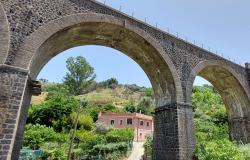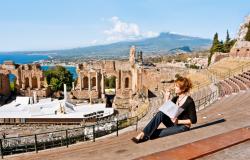 Global warming has started to heat up the Mediterranean with worrying consequences for the sea's biodiversity, Italian scientists have warned.
Global warming has started to heat up the Mediterranean with worrying consequences for the sea's biodiversity, Italian scientists have warned.
"We have registered a constant trend of rising deep water temperatures, with a peak in 2004," said Silvio Greco of the Central Institute for Research Applied to the Sea (ICRAM).
Greco was presenting his findings on the sea's temperatures to 800 scientists from 35 countries attending the 38th congress of the Mediterranean Science Commission (CIESM) in Istanbul.
The fact that deep water temperatures are up is particularly worrying because it shows global warming is at work, he said.
Surface temperatures, on the other hand, are subject to the impact of a number of temporary factors.
"The Mediterranean accounts for just 0.8% of the planet's marine waters, but it is estimated to contain 9% of global biodiversity, so it is a highly delicate environment " he explained.
"The temperature increases are small, measured in hundredths of a degree, but even that is too much, because deep water temperatures do not normally change".
Greco's team conducted their research in the Sicilian Channel - the 160km stretch of water between Sicily and Tunisia.
He said the channel's special geographic characteristics make it a sort of global-warming barometer.
As well as coming between the bottom of Europe and the northern tip of Africa, the channel also features special water flows, with deep currents moving east to west, and surface currents going the opposite way.
"Changes take place here earlier than they do in the rest of the Mediterranean," Greco said.
The Sicilian Channel - also known as the Strait of Sicily - is home to many species of whale, dolphin and shark too.
Experts believe Italy and the rest of southern Europe are particularly vulnerable to the onset of climate change.
A recent UN report said average temperatures in Italy could rise by as much as five degrees Celsius by the end of the century.
This could cause water resources to shrink with disastrous consequences for tourism and agriculture.
Other reports over the last year have sounded the alarm about the damage climate change is doing to Italy's environment too.
A study released last month by the Agency for New Technologies, Energy and the Environment (ENEA), revealed that 32% of Italian territory is under threat from desertification - especially in the south - because of climate change and the resulting fall in rainfall levels.
Global warming is already battering southern Italy's biodiversity, the ENEA report said.
As a result, 357 of Sicilian species are in danger of extinction, while Sardinia has 181 endangered species, Calabria 94, Puglia 84, Basilicata 65 and Campania 64.
Last June Rome university lecturers presented research showing that Italian rodents are hibernating less and birds are losing weight and seeing their reproductive cycles disrupted by changes to the seasons.
That study also said that 20% of fish in the Mediterranean are now "immigrant" species that have moved up from southern seas via the Suez Canal and the Strait of Gibraltar.
Last September Italian beekeepers reported that bizarre weather patterns caused a 30% drop in honey production in 2006.
And a recent report by environmental association Legambiente said that global warming was bringing back tropical diseases like malaria to parts of Italy.







